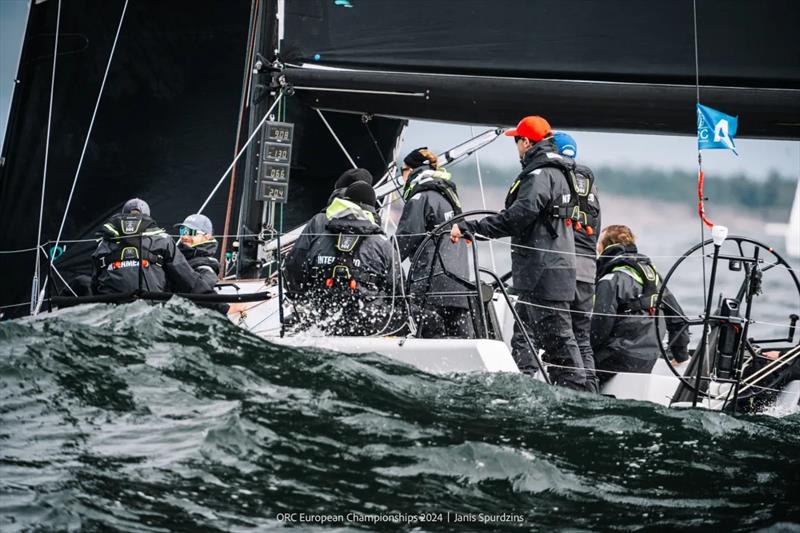
2025 ORC VPP and Rules now available
by Offshore Racing Congress 17 Jan 05:55 GMT

Landmark 43 INTERMEZZO (GER) - ORC Europeans 2024 Åland © Janis Spurdzins
After a year of input and development to the class rules and the Velocity Prediction Program (VPP), and several weeks after their approval at the ORC Annual General Meeting in November, the Offshore Racing Congress (ORC) announces its 2025 rules and software are ready for the global sailboat racing community.
ORC rating offices around the world and the ORC central rating office are now able to issue 2025 certificates according to their guidelines and policies. A list of these offices is at orc.org/sailors/rating-officers.
The ORC VPP is at the core of the ORC's suite of rating rule systems that bring fair and transparent handicap racing to a wide variety of Monohulls - from Sportboats to Superyachts - and a wide variety of Multihulls as well. This year's 2025 update to the VPP includes upgrades to the aerodynamic model for downwind sails, a new centerboard draft model for Superyachts, the start of improvements to the hydro and aero models for Multihulls, and a VPP tailored to the magnificent J Class fleet.
The net result of this research is some improvement in rating accuracy but no rating changes that are more than 0.5% of the All Purpose Handicap (APH) across the thousands of boat types in the worldwide ORC fleet.
And due to this very small effect on rating from 2024 there will be no change to the 2025 CDL rating limits used to define Classes 0, A, B and C at full-crew ORC World Championship and ORC European Championship events.
The Class definitions for ORC Double Handed Championships, however, will now be defined according to the following APH values:
- Class A: APH from 418.0 - 517.9 s/NM
- Class B: APH from 518.0 - 557.9 s/NM
- Class C: APH from 558.0 - 630.0 s/NM
ORC DH championships will also now have separate divisions for Male, Female and Mixed gender teams.
There is one notable new feature to all 2025 ORC certificates that will help to better define the boat's design and rig layout: a scale drawing of the hull that now includes the underwater profile of the boat and a rig drawing that includes both running backstays and check stays. This is a small but significant improvement in ORC's principles of transparency since this now displays for owners, sailors and race managers more information about the boat's keel and rudder shapes as well as the rig set-up.
Another significant innovation to the ORC VPP is that its range has now been extended to include 4 knots of true wind speed, and thus covers the vast majority of racing conditions from 4 to 24 knots. While PCS scoring will remain programmed for the range of 6-24 knots, use of TWS of 4 knots will be of particular importance in Weather Routing Scoring and some specific course models that use single number ratings.
A summary list of all the changes to the ORC rules for 2025 can be found here. These and other changes in rating can be explored by using the ORC's unique web-based access portal to the system's ratings and certificates: ORC Sailor Services.
Sailor Services is where test certificates can be run using the new 2025 VPP, as well as copies of all past ORC certificates issued since 2009, the generation of ORC Speed Guides of polars and Target Speeds for windward/leeward racing.
"We are very proud of our ORC staff and technical teams to deliver these important updates in the VPP and the rules early in this new year," said Bruno Finzi, Chairman of ORC. "This is a tremendous effort now that ORC has grown to issue over 14,000 certificates around the world. As it evolves and improves, we feel our system continues to provide an important service for fair racing among so many types of boats that are racing at all levels of this sport."
For more information visit orc.org.